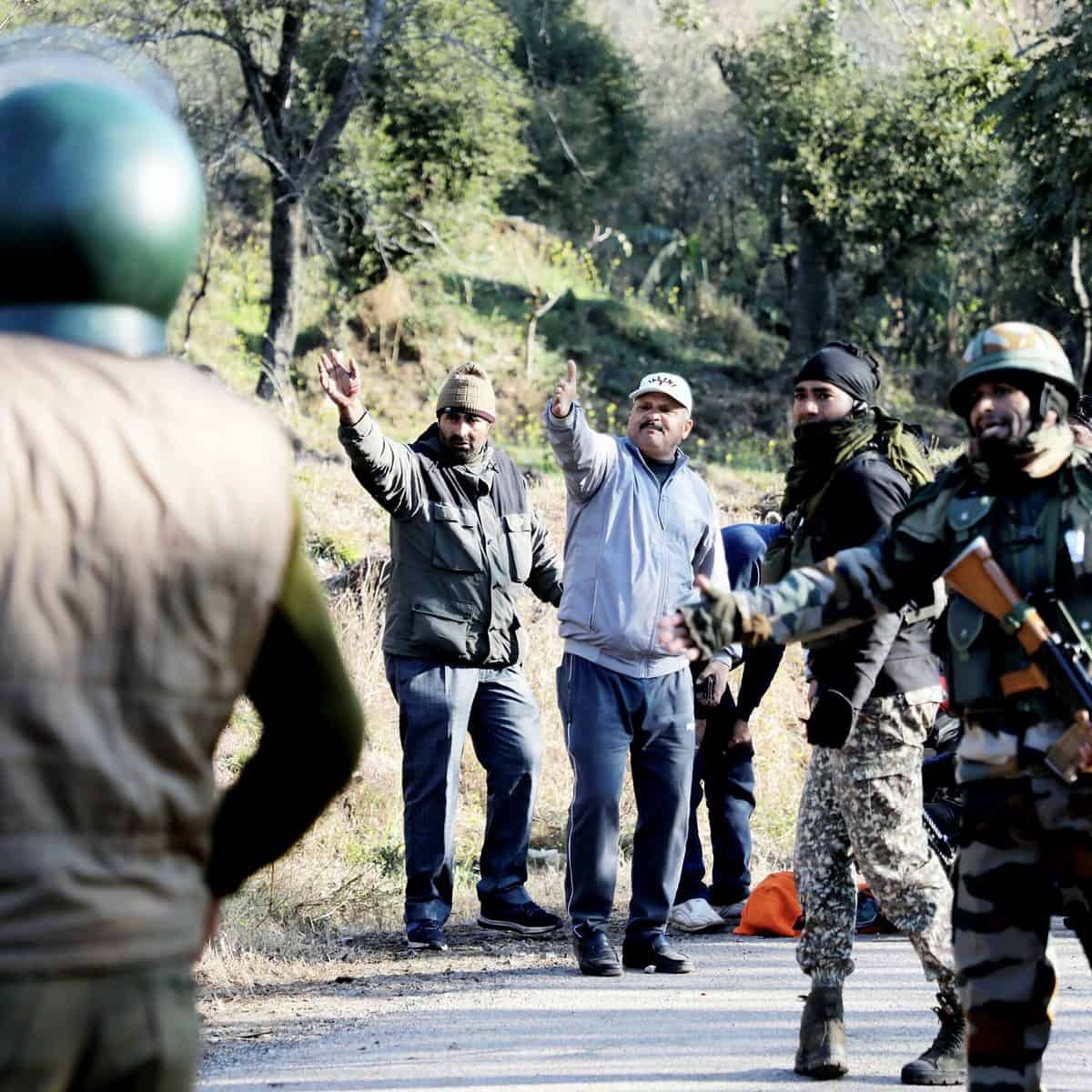
Within hours of the killing of four villagers in a terror attack in a village in the border district of Rajouri on Sunday evening, and two girls on Monday morning in an IED blast, politics took centre stage, in which the divisive narratives clouded the gravity of the situation. The terror attacks in Dangri village in Rajouri, the district that borders Pakistan-occupied Jammu and Kashmir, brought to the fore many disturbing facts that the terrorists had chosen their targets on the basis of religion, and broken a spell of nearly 20-year-old peace in the region, where barring infiltration there had been no major terror incident. That was shocking, but what was not being looked at or brought into narration that why it has happened and what could be the motives of perpetrators of the heinous crime who targeted men, women and children The victims were innocent, they had harmed none.
The political slugfest was on two lines. The saffron parties blamed Pakistan and its supporters in J&K for the gruesome attack, while the Kashmir-centric parties while condemning the acts of terror also brought into focus the Hindu-Muslim divide prevailing in the country because of the politics of hate. This gave the impression that terror attack has multiplied the communal tensions because of the prevalent hate cult in the country where people are viewed more by the faith they belong to, than anything else.
BJP was the first to speak on the terror incident. It felt obliged to do so, because the victims were Hindus, and that too form a border area, which the party believes is its core constituency. The party leaders were quick to point out to the role of Pakistan in this terror attack. This was but natural as who else could have gained from this act of terror.
The party leaders Tarun Chugh, General Secretary in-charge of Jammu and Kashmir affairs straightway blamed Pakistan’s spy agency ISI, for the terror attack. The J&K unit president Ravinder Raina hailed the security forces and believed that they would be traced wherever they might be hiding, and spokesperson Altaf Thakur said that another Balakot type surgical strike could be mounted to eliminate terrorism and its sources across the border.
Pakistan, as it is known in India, as epicenter of terrorism, seeks some kind of pleasure in the bloodletting in Jammu and Kashmir as that helps it in sustaining a narrative that the place is disturbed and “ disputed.”. It always attributes the terror attacks in Jammu and Kashmir, from 2016 street protests and stone-throwing in 2016 to Pulwama terror attack of February 2014 to the anger of Kashmiris over their frustration with the system. It grids its own axe in the whole narrative for that enables it to supplement its accusations against the government of India, and its ways in Jammu and Kashmir.
But there is a pitfall as well. Attributing terror attacks to Pakistan is reflecting truth, but this macro picture tends to overlook other critical factors. How could Pakistani terrorists, who came from across – Rajouri district runs along the LoC, the dividing line between J&K and Pakistan occupied Jammu and Kashmir, sustain themselves in the area . It is not just that they came from across the LoC and then returned without being detected. It is unthinkable that they could have survived in the terrain without the local support, out of coercion or otherwise When fingers are pointed at Pakistan, the larger picture of ifs and buts and the details that could lead the security agencies to trace the culprits of the heinous crime, is lost. It needs to be reflected that when Pakistan is blamed, rightly though, is it Pakistani geography or the terrorists sponsored by it are being talked about or there is something more than that. Pakistan is responsible for the acts of terror is an overarching factor, under which there are many more fault lines work.
National Conference president and former Chief Minister Farooq Abdullah condemned the attack in no uncertain terms. He called it barbaric but also drew attention toward the plight of Muslims in the country.
Amidst all these competing political narratives, the real focus of menace of terrorism and how to tackle it is moving to the background. This is the time when political hyperbolics can wait, which would help in working more effectively in checking the menace of terrorism.



